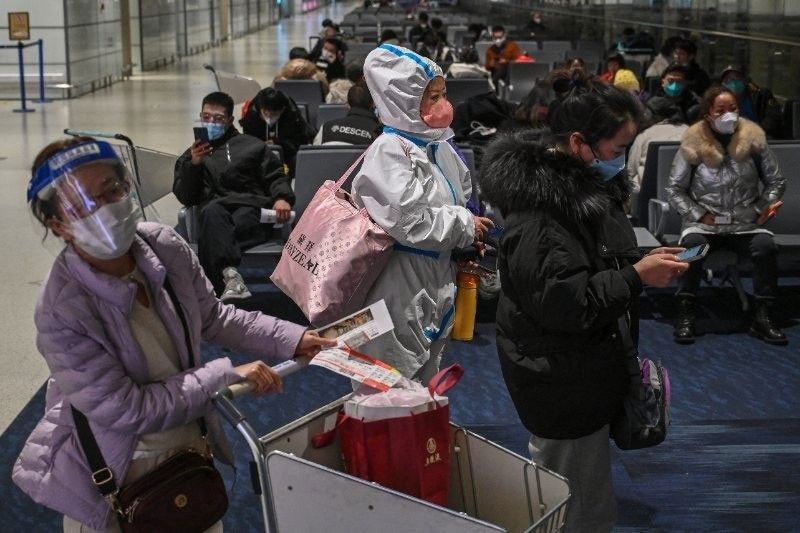OCTA: China COVID-19 surge may trigger new wave

MANILA, Philippines — The OCTA Research group has stressed the need to closely watch the COVID-19 situation in China, which is experiencing a significant surge in new cases after it recently lifted restrictions, as it may trigger a new wave of the highly infectious disease locally.
“So far, the variants that we monitor from China are all similar to the ones that we had here: BQ, XBB, BA5. A lot of names, but they’re all very similar. They’re all Omicron subvariants. They are very infectious, but they don’t cause a lot of severity,” OCTA Research fellow Guido David said in an interview with “The Chiefs” aired over Cignal TV’s One News last Tuesday night.
“Of course, what we’re concerned about is what we don’t know. So I think that’s why we’re a bit cautious,” David added, referring to reports of a different situation on the ground from what the Chinese government is officially reporting.
The expert maintained that significant surges of new COVID cases in the country may now be “a thing of the past” unless a new highly transmissible variant of the viral illness emerges, but stressed that this does not mean that new cases will drop to zero or even remain low for the remainder of the year.
“We will expect more waves (this) year, but nothing severe and nothing that will fill up hospitals,” David said.
“What we saw in the last six months of last year, more or less, this would be status quo (this) year. We don’t expect cases to go down to zero or remain at around 100 per day. It will be like roller coaster – there will be ups and downs, there could be three or four waves this year,” he added.
Such situation may indicate that COVID-19 has already reached “endemism” or the stage when it becomes a regularly occurring illness that is maintained at baseline levels.
David compared it to having “flu seasons,” when more people get infected with the influenza virus.
He said another wave is possible as early as next month, citing the new Omicron XBB 1.5 subvariant that is spreading in the United States.
He added that waning immunity could also be a factor in the number of people who contract COVID.
“But again, this is not so different from the ones we had before. Even XBB (did not cause) a lot of (severe cases),” David said.
Still not boostered
Meanwhile, many Filipinos remain reluctant to get COVID vaccines, according to the Department of Health.
The DOH reported that a total of 73.8 million individuals nationwide are now fully vaccinated or have received primary two doses of vaccines as of Jan. 8.
The agency, however, noted that only 21.1 million out of the eligible population have received the first booster dose.
Almost 3.8 million have received second booster shots that can provide additional protection from severe and critical COVID infection.
The DOH further reported that 6.9 million senior citizens and 10 million adolescents are now fully vaccinated, while almost 1.2 million adolescents are now boosted and more than 5.4 million children are already fully vaccinated.
The agency stressed the need for people to get vaccinated and boosted against the virus while COVID cases are low as it expressed intention to integrate this year COVID services in the regular national immunization program in a bid to encourage more people to get vaccinated against the disease. – Mayen Jaymalin
- Latest
- Trending


























